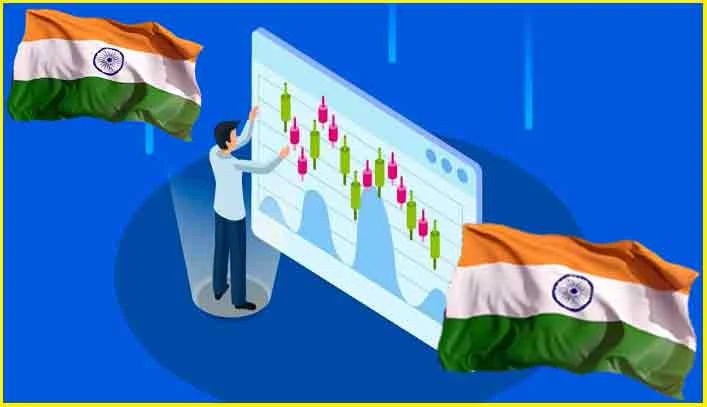More Best Top Forex Brokers India For 2023, Detailed Reviews
Although it is strictly regulated and becoming more and more common in India, forex trading is not always easy to do there.
Generally speaking, it's best to work with a broker who is authorised in the nation where you now reside. However, using a foreign broker, such as those on our list, who accepts clients who reside in India, is the only alternative available to Indian citizens who wish to engage in currency market speculation. This is so because Indian financial institutions that are authorised locally are subject to restrictions.
We produced a list of all brokers who accept new clients from India and ranked them according to their Overall ranking, which was established by our thorough annual evaluation of forex brokers. This allowed us to identify the top forex brokers in India. Our special Trust Score is part of this rigorous analysis of more than 100 factors; see below for more information on Trust Score.

Here is our list of the best forex brokers in India:
- Interactive Brokers - Great overall, best for professionals.
- Saxo Bank - Best web-based trading platform.
- IG - Best overall broker, most trusted.
- FOREX.com - Excellent all-round offering.
- AvaTrade - Great for beginners and copy trading.
- FP Markets - Excellent pricing, great for MetaTrader.
- Admiral Markets - Great for MetaTrader.
India Forex Brokers Comparison
Using the forex broker comparison tool or the summary table below, compare forex and CFD brokers that are licenced in India side by side. The ForexBrokers.com website is used to sort this broker list. overall position
To avoid forex Mistakes, selecting a regulated broker is essential, and the nation in which your broker is regulated is as significant. Investors should always take into account any licences that a broker may have across all of its global subsidiaries and brands.
These regulatory organisations are ranked into three groups using our Trust Score, a unique algorithm, with Tier 1 designating the strictest financial regulators and Tier 3 designating the least stringent. SEBI is now a Tier 2 Jurisdiction in our rankings.
Based on the information we have collected on each broker, we have assigned each one a trust score between 1 and 99. A broker's Trust Score should be greater.
Is it legal to trade forex in India?
Yes, but unless you are just exchanging cash at the airport while travelling through India (such as currency futures), the bulk of SEBI-regulated brokers that offer forex trading will only be able to offer exchange-traded FX products. For instance, the SEBI-regulated Interactive Brokers does not offer traditional forex (i.e., non-deliverable spot) to Indian residents; instead, it offers exchange-traded currency derivatives.
When a physical exchange of one currency for another takes place (where real, physical delivery of the currency occurs), forex trading in India is strictly controlled. It is also legal when carried out through a broker who is subject to SEBI regulation. On the other hand, Indian citizens will have a difficult time using a margin account to trade non-deliverable spot currency.
While overseas brokers that accept clients from India are the only choice for investors wishing to trade FX in India, many Indians utilise SEBI-regulated brokers to invest in local exchanges like the National Stock Exchange (NSE) and the Bombay Stock Exchange (BSE).
However, if you live in India and are considering using a foreign broker to trade forex, be sure they are well-regulated. The Reserve Bank of India (RBI) has cautioned against doing business with overseas brokers who aren't locally regulated as recently as September 2022. Additionally, there are restrictions put in place by the Central Bank of India that might make it challenging to deposit and withdraw money from international forex brokers that are not subject to SEBI regulation.
What exactly is forex?
Foreign exchange, or forex, is the trading or exchanging that occurs on international currency markets when one currency is purchased or sold in exchange for another. The challenging objective of forex traders is to make money by correctly predicting value changes.
Retail and institutional traders, major corporations, banks, and central banks that assist in regulating monetary policy, such as when printing money that enters circulation, are some of the different types of players in the forex markets.
Every currency transaction has a minimum of two parties. A buyer is on one side, while a seller is on the other. Participants in the forex market are either speculators taking an investment position anticipating a price increase or they have a need for the specific currency, such as for business purposes or risk hedging.
Let's imagine, for instance, that you have dollars that you anticipate losing value in and that you want to sell in order to buy euros for a vacation you have planned to Europe. Or perhaps you view the euro as an investment and anticipate that its value will rise in relation to the US dollar.
In either scenario, you pay for the euros with U.S. dollars and agree to exchange your current dollars for the euros at a predetermined rate (the rate may be expressed in dollars per euro or euros per dollar). Such a trade may result in a profit, a loss, or a break-even outcome depending on the price at which you exit the deal and any fees paid.
Even if it does happen on controlled exchanges, forex trading is largely decentralised. To ensure compliance with local rules and regulations, forex brokers must possess valid licences from financial market regulators in the majority of developed nations.
Source:
- https //www forexbrokers com/
